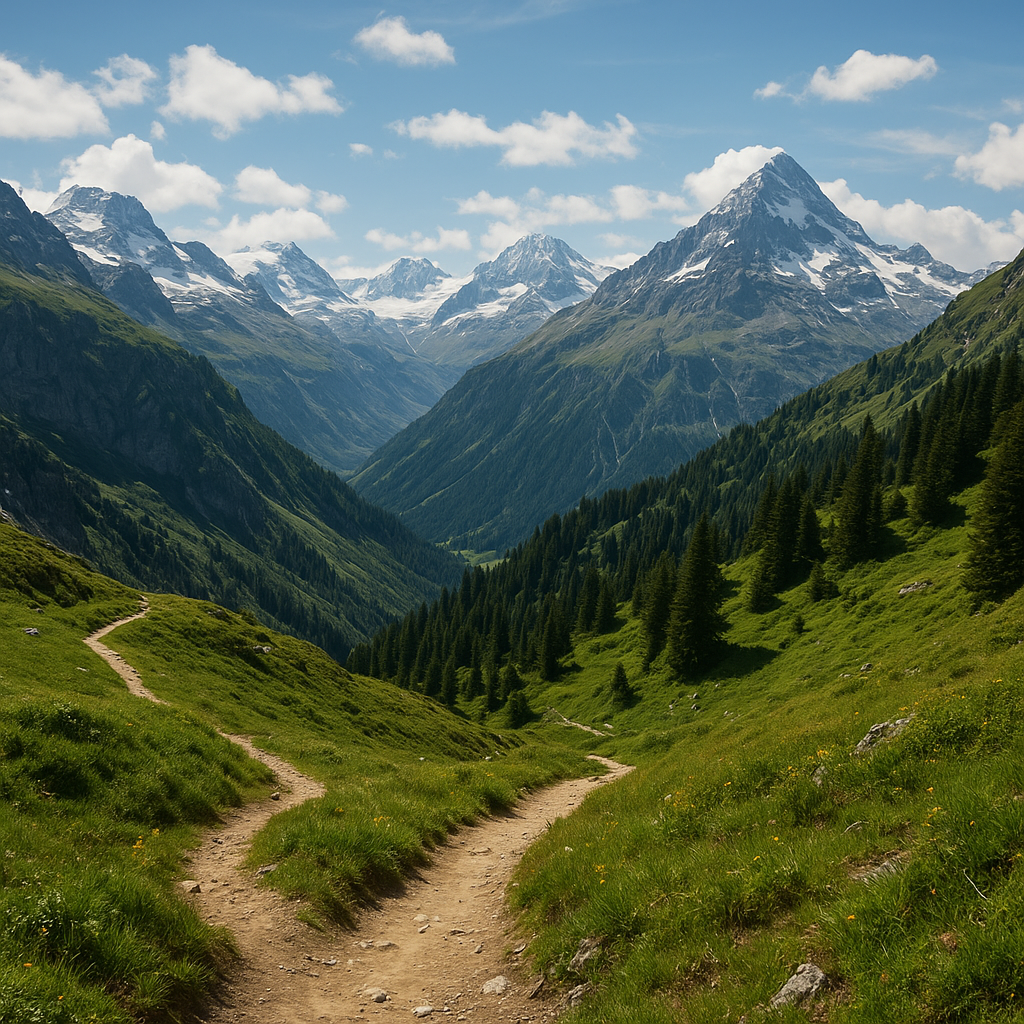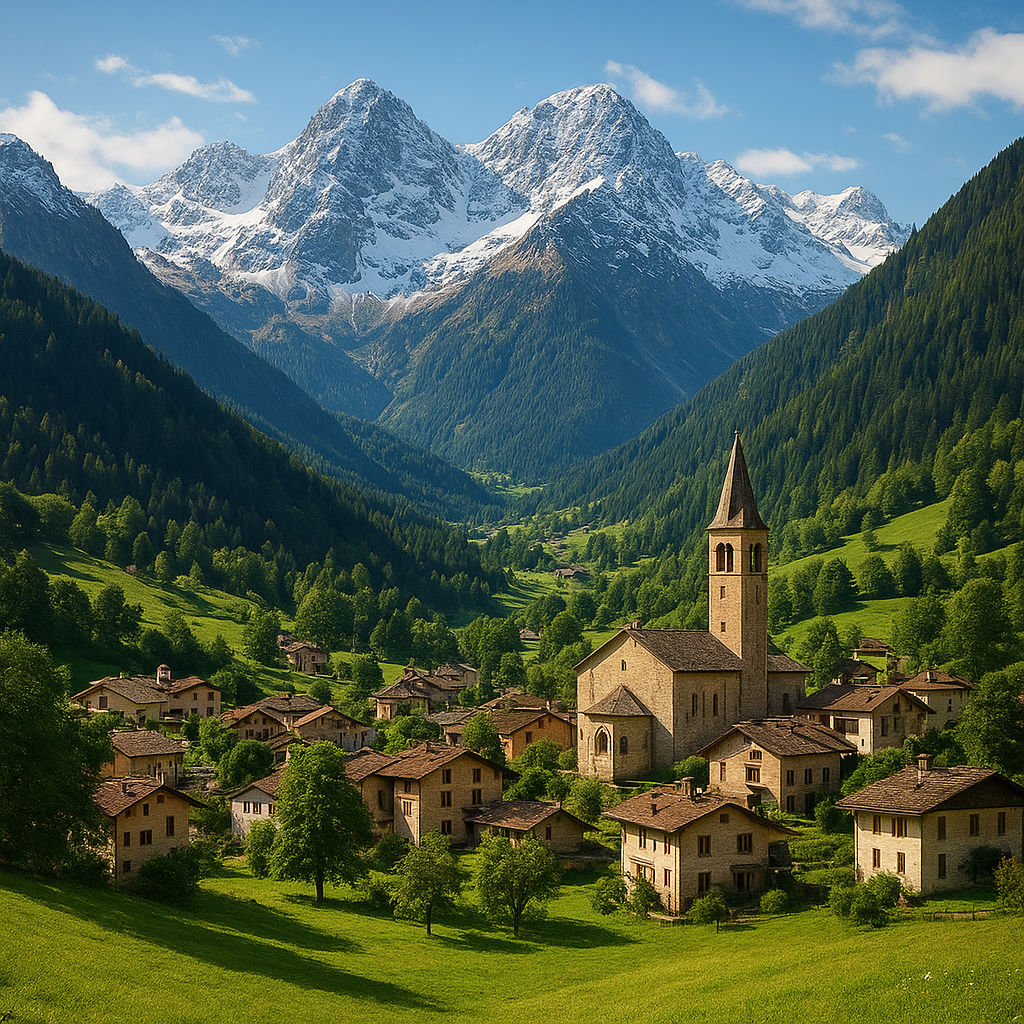
The Alps span across eight countries, offering a breathtaking tapestry of snow-capped peaks, emerald valleys, and crystal-clear lakes. Hiking enthusiasts from around the world flock to this iconic mountain range for an unforgettable adventure that combines physical endurance with unrivaled natural beauty. From the charming villages of the French Alps to the majestic glaciers of Switzerland and the rolling hills of Austria, each region provides unique trails, diverse ecosystems, and cultural richness. Whether you seek a strenuous climb to a lofty peak or a leisurely walk through alpine meadows, these storied mountains promise panoramic vistas that will leave you inspired.
French Alps Treasures
The French Alps are synonymous with legendary summits, dramatic ridges, and the celebrated Mont Blanc massif. This region offers a range of routes, from multi-day treks to shorter day hikes, weaving through wildflower-filled pastures and steep rock faces. The combination of history, gastronomy, and natural wonder makes this corner of the Alps truly exceptional.
Tour du Mont Blanc Circuit
- Length & Duration: Approximately 170 km, often completed in 7–11 days.
- Highlights: Crossing three countries—France, Italy, and Switzerland—this route delivers stunning glacier views, alpine huts, and the chance to reach the summit of Col de la Seigne.
- Difficulty: Moderate to challenging; hikers should be prepared for steep ascents and variable weather.
Vanoise National Park Loop
- Length & Duration: 60–80 km, typically 5–6 days.
- Highlights: Dive into France’s first national park, spotting ibex, marmots, and golden eagles. The trail meanders past glacial lakes and rugged passes.
- Difficulty: Moderate; well-marked trails and welcoming refuges make this trek accessible to many.
Alpe d’Huez to Col de Sarenne
- Length & Duration: Roughly 20 km, 1–2 days.
- Highlights: Famous for its 21 switchbacks in cycling lore, this hiking route offers lush forests, blooming meadows, and a chance to savor local cheeses at mountain farms.
- Difficulty: Easy to moderate; ideal for families and those seeking a taste of alpine pastoral life.
Swiss Alps Wonders
The Swiss Alps showcase some of the most iconic peaks on the planet: Matterhorn, Eiger, Jungfrau. Here, well-maintained trails, modern mountain railways, and cozy mountain huts create an efficient infrastructure for hikers of all levels. Prepare to be amazed by the reflective beauty of alpine lakes framed by soaring granite walls.
Matterhorn Base Camp Trail
- Length & Duration: About 22 km, 2 days, with an overnight in Hörnli Hut.
- Highlights: Marvel at Matterhorn’s pyramidal silhouette from various angles, hike through the Hörnli Ridge, and enjoy a rewarding sunrise over the lofty peak.
- Difficulty: Challenging; high altitude and rocky terrain require proper gear and acclimatization.
Eiger Trail Adventure
- Length & Duration: 6 km, half-day hike.
- Highlights: Traverse the north face of the Eiger, one of the most infamous walls in mountaineering history, and witness dramatic rock features up close.
- Difficulty: Moderate; suitable for most fit hikers, with some exposed sections.
Bernese Oberland Panorama Route
- Length & Duration: Variable loops, 3–4 days.
- Highlights: Connect Interlaken, Grindelwald, and Mürren while soaking in vistas of the Jungfrau region. Tram and trains can shorten stages for flexibility.
- Difficulty: Moderate; trail systems are well signed and huts comfortable.
Austrian Alps Gems
Austria’s alpine realm is famous for its lush meadows, traditional chalets, and extensive hiking networks known as the “Weitwanderwege.” These long-distance trails traverse the Tyrol, Salzburg, and Vorarlberg regions, offering hikers a blend of cultural encounters and untouched wilderness.
High Tauern National Park Traverse
- Length & Duration: 120 km, 8–10 days.
- Highlights: Journey through Austria’s largest national park, skirt around the Grossglockner, and camp beside glacial streams.
- Difficulty: Challenging; mountain passes exceed 2,800 m, demanding stamina and good weather planning.
Dachstein Skywalk and Hinterstoder Trail
- Length & Duration: 25 km, 2 days.
- Highlights: Stroll across the famous Skywalk platform above the Dachstein glacier before descending into the alpine village of Hinterstoder.
- Difficulty: Moderate; some via ferrata sections on optional routes for thrill-seekers.
Lechweg Trail
- Length & Duration: 125 km, 7–8 days.
- Highlights: Follow the source of the Lech River from its glacial birthplace to the lake at Füssen, Germany, passing through fairytale villages and verdant valleys.
- Difficulty: Easy to moderate; well-maintained paths and abundant guesthouses.
Navigating the Alpine Environment
Successful hiking in the Alps demands respect for rapid weather changes, varied terrain, and high altitudes. Before setting off, consult local alpine clubs for trail updates, carry layered clothing, and pack essential safety gear. Trekking poles, a reliable map or GPS device, and a first aid kit will help you manage unexpected challenges. Hydration and nutrition are critical—always refill water at marked springs and savor calorie-rich snacks to sustain energy levels. A comfortable pair of boots with ankle support and proper break-in time will prevent blisters and ensure every step remains comfortable.
Flora, Fauna, and Cultural Encounters
The Alps host an extraordinary array of wildlife, from chamois gracefully navigating steep slopes to shy marmots whistling alarms atop rocky outcrops. In spring and summer, alpine meadows burst into color, carpeted with edelweiss, gentian, and saxifrage. Birdwatchers can spot golden eagles, alpine choughs, and bearded vultures soaring on thermal currents. Below the treeline, dense forests of pine and larch provide habitat for deer and foxes.
Local traditions enrich every hike, as alpine hospitality extends from rustic refuges offering hearty stews to centuries-old mountain farms crafting artisan cheeses. Festivals celebrating folk music, yodeling, and traditional dress bring villages alive, bridging the gap between past and present. Engaging with this cultural tapestry adds depth to your journey, transforming a simple trek into a meaningful exploration of heritage and nature’s grandeur.

